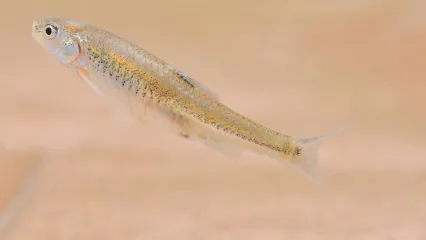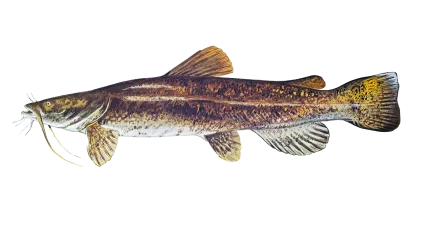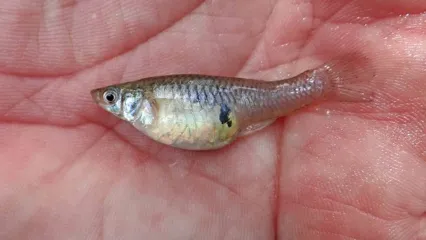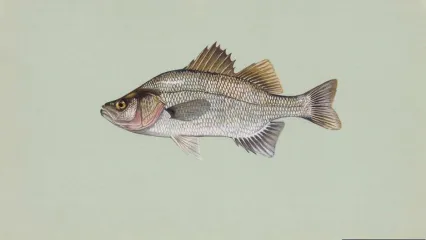
Description
White perch is native to the estuaries and freshwater systems of the Atlantic coast from Nova Scotia to South Carolina. The distribution of white perch has expanded well beyond their native range due to both accidental introductions and intentional stockings intended to create a sport fishery. White perch invaded Lake Ontario in the 1940s and spread throughout the Great Lakes. They entered the Mississippi River system through a canal connecting Lake Michigan with the Illinois River near Chicago. From there, white perch are expected to invade up and down the Mississippi River in the coming years. White perch were introduced into Kansas accidentally from being mixed in with a stock of striped bass that originated from Virginia. These fish were stocked into Cheney and Wilson reservoirs. Allowing them to move downstream from Cheney Reservoir and enter the Arkansas River and continue downstream into Kaw Reservoir.
White perch were first found in Oklahoma Department of Wildlife Conservation (ODWC) routine sampling in 2000. ODWC began a research/monitoring program in 2001 intended to follow white perch population trends and to look at competitive effects on white crappie and white bass.
Status and Impacts
To date, populations of white perch are in Arkansas River, Kaw, Keystone, Robert S. Kerr, Skiatook, Sooner, WD Mayo, and Webbers Falls. The continued potential downstream expansion into other reservoirs of the Arkansas River system remains likely.
ODWC is asking anglers to destroy any white perch caught from Kaw and report any catches of white perch outside of Kaw, Keystone, and Sooner Lakes to (918) 683-1031. We would also ask anglers to freeze any specimens for confirmation by an agency biologist.
White perch frequent areas with level bottoms of compact silt, mud, sand, or clay and show little preference for vegetation, structures, or other shelters. Adults move up large rivers to spawn (much like the white bass) at water temperatures between 52 and 61 degrees Fahrenheit. White perch are long-lived fish, with some reported to live up to 17 years.
White perch are predacious carnivores with juveniles feeding on aquatic insects, small crustaceans, and small fish. White perch have also been shown to prey on fish eggs of valuable sport fishes such as walleye, white bass, and yellow perch when introduced outside their native range. The collapse of the walleye fishery in part of Lake Ontario has been blamed, in part, on egg predation by white perch. Having populations of white perch could lead to competition and hinder the recruitment of native fish.
Is it a White Bass or a White Perch?
WHITE BASS (Morone chrysops)
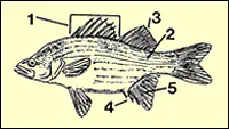
- The body is deepest below the dorsal fin and the depth remains fairly uniform below the entire spin dorsal fin
- From 6 to 10 dark lines run horizontally down the back and sides.
- When the spiny dorsal fin is pulled erect, the soft dorsal fin remains relaxed.
- Each of the 3 bony anal fin spines are of different lengths and are arranged in ascending order.
- The anal fin usually has 11 or 12 soft rays behind the 3 bony spines.
WHITE PERCH (Morone americana)
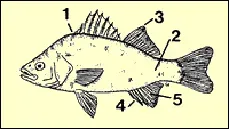
- The body is deepest just ahead of, or at the beginning of, the dorsal fin.
- There are no lines or stripes on the back or sides.
- When the spiny dorsal fin is pulled erect, the soft dorsal fin also becomes erect.
- The second and third bony anal spines are almost exactly the same length.
- The anal fin usually has 8 or 9 soft rays behind the 3 bony spines.
How To Observe
If you think you have discovered any invasive species contact us at (918) 200-4815 or report online.
